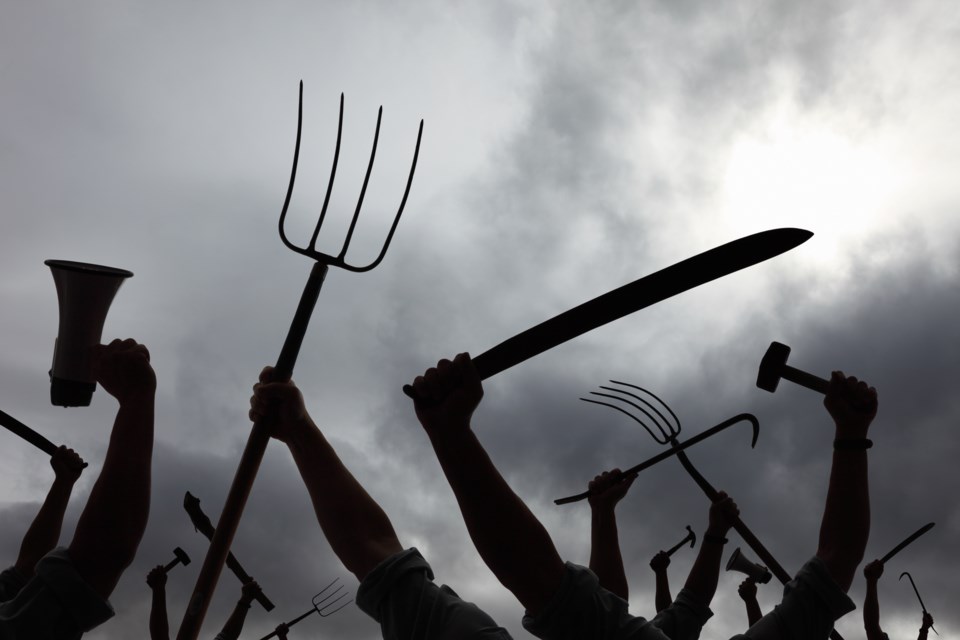The other day in the Pique newsroom, I voiced an opinion that could never be printed—at least not in Whistler, with my name attached.
Not because it was obscene or profane, or hate-filled or something like that. It was just an opinion so inconceivable among Whistlerites that I might actually get run out of town if I wrote it down (and I’m only half kidding here).
So we’ll leave that one concealed beneath the ol’ sacred cone of silence, at least for now.
My noxious, unspeakable view may have cleared the room, but it got me reflecting on the role public commentary plays in our modern society.
For centuries, opinion columns and letters to the editor in newspapers have provided readers with a broader understanding of their communities and societies.
Going beyond the daily headlines, opinion pieces (in all of their various forms) are able to provide valuable context, or information missing from news stories. They can sway public opinion, or argue for or against specific points of policy.
They can shine light on issues or events that are otherwise underrepresented in the daily discourse—or they can simply serve to stir the pot.
In this case, there would be no real reason to platform my terrible opinion. It progresses no productive argument for the greater good; probes no serious issue of public concern. The discussion it would create would be entertaining, for sure, but it would be completely pointless. Sharing my opinion would only serve to make readers mad—controversy for the sake of controversy, the definition of a hot take.
And yet, some morbid, anarchistic part of my brain can’t help but wonder how big the blaze would get if I only lit the match.
I know I’m not alone in that curiosity. In fact, I’m sure most who are reading this are now itching to know what my big dumb opinion is (trust me, you’re not missing out).
In our modern media landscape, hot takes are a dime a dozen. Chances are you’ve encountered three or four through Facebook, Twitter or Instagram—pick your poison, really—today before you came across this article.
The price of cheese keeps going up. Whistler’s side streets need better maintenance. E-bikes are the scourge of the Valley Trail. Nobody knows how to drive properly but me. Vail Resorts is the literal devil.
Opinions, they say, are like a certain southerly orifice—everyone has them (and they usually stink).
So why do we find the bad ones so irresistible?
Perhaps it has something to do with our own self-superiority, or at least the illusion of it.
Cunningham’s Law, named after Ward Cunningham, the inventor of wiki software, states “the best way to get the right answer on the internet is not to ask a question; it’s to post the wrong answer.”
We see something we know to be wrong, and our brains find it hard to resist the urge to engage—click, comment, correct, or maybe just rage.
As an interesting aside, some political opportunists are now leveraging Cunningham’s law to further spread their partisan messages; by producing memes and infographics with obvious spelling and grammar errors, they ensure more clicks, comments and shares. Even if it’s mostly from people making fun of their supposed “incompetence,” the logic is that the core message is still getting out there, and hopefully getting through to potential new voters. It’s subtle, and somewhat slimy—but smart, in a dumb sort of way.
It’s the same logic used by social media provocateurs of all stripes: make outrageous, controversial statement, knowing full well the reaction it will evoke; watch the digital impressions multiply as the offensive hot take provokes reasonable-minded people into denouncing it; watch your influence spread like an invasive species in the ditch.
There’s no such thing as bad press, as the saying goes.
It’s unfortunate that we as a society have decided to put so much weight behind supposed “influence”; that one’s number of followers, likes and shares so directly equates to their societal worth (and in many cases, earning power).
After all, once you plot the course, it’s only a matter of time before it’s a race to the bottom—so it’s really no surprise the tactics of engagement have so steadily devolved.
The customer is always right, and the customer, in this case, wants big, loud, offensive hot takes. Or at least that’s what their clicking habits say.
On a related note, if you’re a hungry, talented writer in Whistler with an axe to grind (and opinions that go beyond hot takes), Pique wants to hear from you.
To steal a phrase from longtime Pique contributor Feet Banks, “where are the young thirsty literary kids salivating to have their voices heard and stir the f@#$ing pot?”
Beats me.
The mediums have evolved, but there’s still room in traditional media for those thirsty literary kids.
So—what’s grinding your gears lately?
Maybe some day I’ll write down my own unspeakable opinion and share it with Pique’s readership—after I’ve announced my retirement, packed my things and secured my plane ticket out of here.
Or maybe I’ll include it in my will, to be read aloud at my funeral. Probably the safest bet, to be honest.




